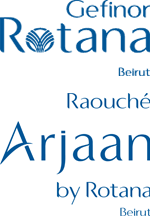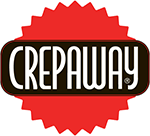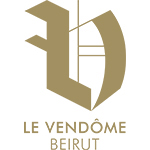Some Lebanese companies and organizations have already
passed the green light. Here are some examples:
|
- Installed energy-saving LEDs with ‘daytime light’ functions to eliminate the use of electric lighting, yielding a 50% reduction in energy consumption
- Aiming to replace every tree displaced for architectural purposes and to increase the overall number of trees on their site
- Installed a solar water heating system
- Used thermal insulation during construction
- Adapting internal waste segregation and management
- Maintaining greenery and public gardens in all parts of the project
- Installed advanced water recovery and water treatment plants
- Adopted an advanced sewage treatment plant
- Equipped units with efficient reduced emission gas heaters
- Air pollutant levels (CO, CO2, NO2 and SO2…) are significantly below international standards
Learn More >
|
| |
- Started replacing conventional light bulbs with LED lights five years ago. Today, 90 percent of all restaurants lights are LED
- All kitchen hoods have ecological filters
- Began using recyclable packaging
- Purchased in 2018 a special oil filter machines which prolong oil lifetime and reduce carbon monoxide
- Uses grease traps in all restaurants which prevents oil and grease from mixing with waste water
|
| |
- Adopted cedar tree from Shouf Cedar Reserve - Barouk Forest in April 2018
- Yearly beach cleaning effort in Manara
- Recycle paper
- Save energy and water by placing bed tents to inform guests that bed sheets will be changed only upon their request
- Increasing the green space at Riviera Beach Lounge and Riviera Hotel Garden
|
| |

- 80% of hotel lights are switched to LED
- Turn off the lights for unoccupied areas in the offices, and when leaving them. The same applies on AC’s outside operating hours and when not in need
- Use tap water efficiently and with minimal waste
- Always print on double side to save papers
- Reuse papers which have only been used on one side for internal purposes
- Paper recycling box is placed in offices; all papers used on both sides and no longer needed are disposed of in the box to be sent for recycling
- Avoid printing papers and mails unless it is necessary. A printing disclaimer is attached to all email messages for awareness
- Use mugs internally instead of plastic cups
- Send empty toners for recycling
- A green throw and an awareness message is placed in all rooms encouraging guests to avoid daily linen change
- Organic products are used in rooms
- Used soap is collected by an association
- Discarded linen is up-cycled as waffle towels, cleaning rags, smaller sheets, etc...
- Segregate kitchen waste
- Regularly maintain equipment to save consumption
|
| |
- Waste reduction
- Conserving water
- Green space: adopted green walls or vertical gardens
- Shifting to paper straws
- Reduce usage of plastic containers
- Usage of recycled material
- Prioritize supply chain partners and organizations that embrace sustainable business practices (friendly vendors)
- Forge local relationships with non-profit and independent groups such as "The Chain Effect" whose mission is to promote the bicycle as a sustainable and convenient form of urban mobility and to facilitate its use in Beirut
Learn More >
|
| |
- Changed lighting quality which contributed in energy saving and electricity bill reduction
- Recycles papers through local NGO by collecting old newspapers and papers which saves paper consumption
- Reduced the consumption of water plastic bottles by replacing them with barrel
|
| |

- Tawlet Ammiq is housed in one of the greenest buildings in Lebanon. Among its green features are Canadian wells – a unique insulation system – solar chimneys, a green roof, and a solar energy system
- The environmentally friendly building has a high thermal performance building envelope, naturally assisted cooling, low-cost lighting, solar water heating, smoke-free and music-free environment
- The building uses 80% less energy to operate than a conventional construction
- All waste (mostly organic) is sorted and recycled
- Beit el Tawlet in Beirut is equipped with a solar water heating system
- No plastic bottles policy in the entire restaurant; only glass water fountains are used
- Only biodegradable bags are used at farmer's market. Introduced fabric tote bags to educate the public about shopping without any bags. Participated in a campaign with L'Orient-Le Jour called #MaBaddaPlastic
- All premises are equipped with recycled paper (toilet paper, tissues etc...)
- Attempt to be as paperless as possible, limiting printing and use recycled paper
|
| |
- Installed LED lights throughout the hotel in 2018 to reduce energy consumption
- Worked with Pro Shred, a company that collects all confidential documents and recycles them
- Collected bottle caps to give to Arcenciel, which trades them for wheelchairs
- Continuously instill environmental awareness in the younger generation by encouraging kids to participate in environmental activities such as recycling, cleaning beaches, and making eco-friendly crafts
|
| |

- Launched ‘Rotana Earth - Global Corporate Sustainability Platform’, a comprehensive framework that addresses environmental, economic and social sustainability to be implemented at all new and operating hotels, resorts, apartments and residences
- Internal Recycling Program in collaboration with Arcenciel: both properties sort materials such as cardboard, paper, and plastic to be collected and recycled by Arcenciel. More than 3,000 kg of recyclable items per property were collected in 2018
- Energy: to reduce energy consumption and environmental harm, all incandescent light bulbs were replaced with LEDs. Movement detectors have been installed in the majority of public areas in addition to timers in guest corridors. Balcony lights are switched off at 2 a.m. daily
- Water: Infrared water taps have been installed in public area WCs to decrease water consumption. Cards inside rooms encourage guests to re-use sheets and towels in order to reduce water consumption, as part of the sustainability program
- Paper: Double-sided printing has been implemented to help save trees and reduce paper use by 50 percent
- Plastic: Both properties aim to ban the use of plastic cups in 2019, to save around 20,000 cups per month. In addition, a new policy will be implemented during the year, to reduce the use of plastic straws by 50 percent, replacing them with eco-friendly alternatives
- Green Meetings: For 2019, Rotana aims to have its meeting rooms go Green. Meeting rooms will be equipped with recycling bins, water jugs instead of plastic bottles, white boards instead of paper flip charts, and bulk stationaries instead of individual items
Learn More >
|
| |

- Recycling: Recycles paper, plastic bottles and caps
- Used oil is recycled into biofuel and construction lubricants which reduce pollution and waste
- Energy saving: The design of outlets focuses on maximizing natural daylight and reducing cool air escapes
- Invested in smart frying machines that automaically filter oil, managing oil requirements in a safe and computerized way, reducing oil consumption and heating waste while maintaining clean oil for frying
- Most our outlets are now lit using LED lamps, which reduces heat and energy bills
- Strengthening our cost-control campaign inside our outlets, promoting efficiency when dealing with water, energy, consumables, etc
- HR department is offering financial incentives to Associates when they perform efficiently on cultural & behavioural levels
- Investing in energy-saving motorbikes
- Environment: The Crepaway Foundation supports NGOs and projects that include planting trees in the mountains of Lebanon, cleaning beaches, saving the heritage of Beirut's old buildings and green areas
|
| |
- Measure energy, carbon, water and waste
- Use actual data to provide customised environmental performance benchmarking, taking into account hotel location, brand and outfitting
- Recommend over 200 Green Solutions to reduce the impacts our energy, carbon and water use and waste have on the environment
- Automatically feed sustainability information about our hotel to our clients
|
| |
- Power saving system in all rooms
- Recycling plastics and papers
- Solar Power System
- Motion Sensors
- Buy remanufactured INK toner cartridge
- Buy energy Friendly items
- Buy energy saving Led Lamps
- Use Green Cleaning products
- Reduce Water Consumption
|
| |
- Energy Saving Projects: Four generators were replaced with newer ones with more efficient models generating an annual saving of $230,000
- Water saving devices were installed into the faucets and showers in all guestrooms generating an annual saving of $23,000
- Untouched food from catering displays and trolleys is donated to the Lebanese Food Bank
- Plastic, carton and paper are sorted in divided waste baskets and sent to Arc En Ciel, More than 2,500 kilograms of paper and 550 kilograms of plastic was recycled since the beginning of the year
- Oil surplus is sent to Darwish Oils, a company that converts used oil into biodiesel, an eco-friendly fuel alternative. Through this initiative, the hotel is converting an average of 3 tons of oil per year, thus reducing the carbon footprint on the environment
|
| |
-
Recycling of organic and non-organic waste in different containers and sending it to the specific recycling industries
-
Installing in Mayrig’s garden/terrace a Green wall made from recyclable materials
-
Controlling water consumption by using automatic irrigation plants in the gardens to reduce water
-
Controlling food waste by liquidating non used primary products. i.e. Producing Jams and preserves from Fruits and vegetables
-
Training employees and staff on reducing energy consumption and waste
-
Promoting and encouraging our Green Activities through social media
-
Filtering and donating leftover foods to specific NGOs such as “Lebanese Food Bank”
-
Participating in green initiatives i.e.: Celebrating Earth day by turning off the lights in each outlet for 1 Hour on the specific day
|
| |
- Recycling of organic and non-organic waste in different containers and sending it to the specific recycling industries
- Participating in green initiatives i.e.: Celebrating Earth day by turning off the lights in each outlet for 1 Hour on the specific day
- Filtering and donating leftover foods to specific NGOs such as “Lebanese Food Bank”
- Promoting and encouraging our Green Activities through social media, etc
- Training employees and staff on reducing energy consumption and waste
- Controlling food waste by liquidating non used primary products. i.e. Producing Jams and preserves from fruits and vegetables
- Controlling water consumption by using automatic irrigation plants in the gardens to reduce water
|
| |

- Replacement of all incandescent and CFL light bulbs with class A energy-efficient LED bulbs
- Replacement of all shower heads with Blu showerheads that utilize ionized water technology
- Installation of water reducers for all water outlets
- Replacement of the old absorption chillers with centrifugal chillers
- Engagement and empowerment of employees in a recycling program
- Achieving Green Engage Level 3, and working on achieving Level 4
- Obliging all contractors to use only green cleaning products
- BMS system control of HVAC set point for all vacant rooms to reduce energy consumption while maintaining acceptable room temperatures
- Operation of all HVAC units according to a specific schedule
- Implementation of an energy-efficient purchasing policy
- Use of energy-saving refreshers for best practices in the laundry and the housekeeping department
- Implementation of a preventive maintenance program
- Tracking of energy data on a daily basis, following up on abnormal results, and sharing the data with all the staff for awareness
- Scheduling of corridor and external lighting in order to make more use of daylight
- Installation of thermo regulators for all hot water storage tanks and heat exchangers
- Installing VFDs on all units that are not equipped with inlet guide vanes, and all pumps that have a rated power of more than 5 kW
- Installation of a Nexus burner controller for boilers that maintains an efficiency rate of 88%
- Installation of energy recovery flash tanks
|
| |
 
- Replacement of all incandescent and CFL light bulbs with class A energy-efficient LED bulbs
- Replacement of all shower heads with Blu showerheads that utilize ionized water technology
- Installation of water reducers for all water outlets
- Installation of an individual water counter for each outlet and kitchen, etc.
- Green Staff orientation given to all colleagues and a Green Team committee created to ensure proper implementation of a recycling program
- Provision of a recycling storage area
- Use of low or zero VOC adhesive and paint products
- Obliging all contractors and suppliers to implement an environmental purchasing policy
- Use of energy-saving refreshers for best practices in the laundry and the housekeeping department
- Implementation of a preventive maintenance program (PMP) and development of sequence of operations for the building’s mechanical and electrical systems
- Tracking of energy data on a daily basis, following up on abnormal results, and sharing the data with all staff for awareness
- Installation of motion sensors for all lighting fixtures in guest corridors, and timers for external lighting in order to make more use of daylight
- Use of energy-efficient refrigerators for all guest rooms
- Installation of weatherstripping on all guest room windows
- Participation in Green Engage waste reporting
- Reduction of usage of CFCs in HVAC and refrigeration systems
|
| |
- Organic fruits and vegetables production
- Waste sorting
- Solar panels for water heating
- Composting
- Future initiatives: working towards moving into a permaculture model
|
| |
- Recycling Paper, Cardboard, Plastic, Glass, and Tins through Sukleen’s Recycling Program
- Plastic bottles are gathered and given to a charity institution for further use
- Collecting plastic bottle covers and given to a charity institution which benefits from them as plastic #5 for future medical purposes
- All our beverages are served in reusable glass cups in order to avoid paper cup consumption
- Recycling Signage available on the recycling boxes and bins
- Recycling Signage available above the printers as a reminder to minimize printing and paper consumption
- Eco friendly reminder under staff e-mail signature to avoid printing the sent e-mail
- Recycling awareness e-mail sent to all staff
|
| |
- Saving power by using LED lamps
- Sukleen training program to recycle waste for all employees
- Recycling boxes were placed in all offices
- In-room Awareness tent card for all guests to reduce consumption of Water
- Conducted awareness campaign among guests by placing tent cards for not changing bed linen and towels unless it is necessary
- Conducted awareness campaign among employees to reduce consumption of water and energy
- Reducing usage of papers by advising all employees to abide by it (less printing)
- Set a plan to reduce energy during low season by closing different sections
|